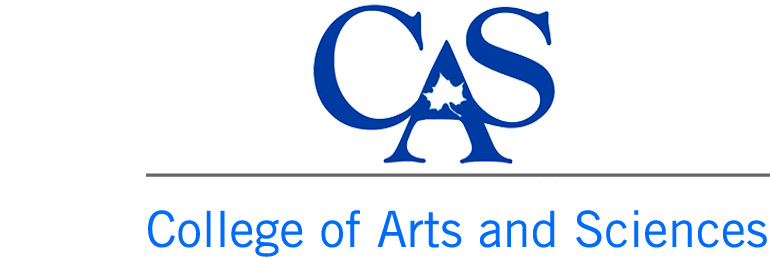You are here
The Department of English contributes substantially to the Foundational Studies Program—offering courses in five categories: Composition, Literary Studies, Global Perspectives and Cultural Diversity, Fine and Performing Arts, and Upper-Division Integrative Electives. The Department’s commitment to meeting students’ educational needs through Foundational Studies courses is clear; after all, we offer multiple sections of courses in four major categories every semester.
Composition
Learning to write is an important skill for all students. To achieve fluency in writing, students must fulfill a freshman-level requirement (one or two courses depending on their standardized test scores) and a junior-level requirement.
Freshman-Level Requirements: Alternative Courses
- English 101 (Freshman Writing I) and English 105 (Freshman Writing II): for students with SAT verbal scores below 510 or ACT English Usage scores below 20.
- English 107 (Rhetoric and Writing): for students with SAT verbal scores of 510 or above or ACT English Usage scores of 20 or above.
- English 108 (Writing about Literature and Culture): for students with SAT verbal scores of 510 or above or ACT English Usage scores of 20 or above.
Junior-Level Requirements: Alternative Courses
- English 305 (Advanced Expository Writing): the most general course offering, although many sections have a thematic focus.
- English 305T (Technical Writing): required by selected majors with a technical focus.
- English 307 (Writing for Teachers): required for English Teaching majors but open to other students.
- English 308 (Practical Literary Criticism): required for English Liberal Arts majors and minors but open to other students.
- English 313 (New Media Writing): a thematic course that evaluates social media applications.
Literary Studies
Learning to read critically is an important skill for all students; learning to appreciate literature enriches people’s lives. To achieve fluency in critical reading—and to enrich their reading experiences—students must complete one Literary Studies course.
- English 239 (Literature and Human Experience): a course that presents literature in multiple genres to explore a major theme (for example, “Relationships,” “Images of Masculinity,” “War and the Human Experience”).
- English 338 (Literature and Ideas): a course that presents literature in multiple genres to explore great ideas (for example, “The Idea of America,” “Literature and the Law,” “Education in Literature”).
- English 339 (Women’s Literature): a course that helps students to understand the roles women writers have played in helping to define and to develop artistic forms and traditions.
- English 346 (Modern Black Literature): a survey of African American fiction, poetry, drama, and nonfiction since World War II.
Global Perspectives and Cultural Diversity
Learning that we exist in a complex, interconnected world will help students explore the increasingly diverse world around them. To develop an awareness of global and social complexity, students must complete one Global Perspectives and Cultural Diversity course.
- English 340 (Multicultural American Literature): a survey of literature by Chicano/Chicana, Native American, Asian American, and African American authors.
Fine and Performing Arts
Engaging in the fine and performing arts is an important experience for all students; learning to create art enriches people’s lives and enhances their appreciation. To achieve these ends, students must complete one Fine and Performing Arts course.
- English 219 (Introduction to Creative Writing): a workshop course in which students write and critique poetry, fiction, creative nonfiction, and drama.
Upper-Division Integrative Electives
As a culminating Foundational Studies experience, students must take a course that synthesizes all elements of their college skills.
- English 484 (Interrelations of Literature): a comparative literature course that deals with the intersection of literature with other forms of art and knowledge. Required for English Liberal Arts majors but open for other students.
- English 486 (English Teaching): Aims, methods, and materials for teaching literature, language, and writing in middle school and secondary schools. Required for English Teaching majors but open for other students.
- English 487 (Crime and Punishment): a comparative literature course that deals with the intersection of literature with the subject matter of criminal behavior.
